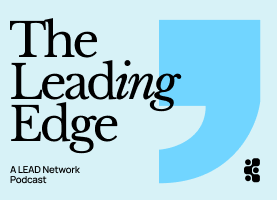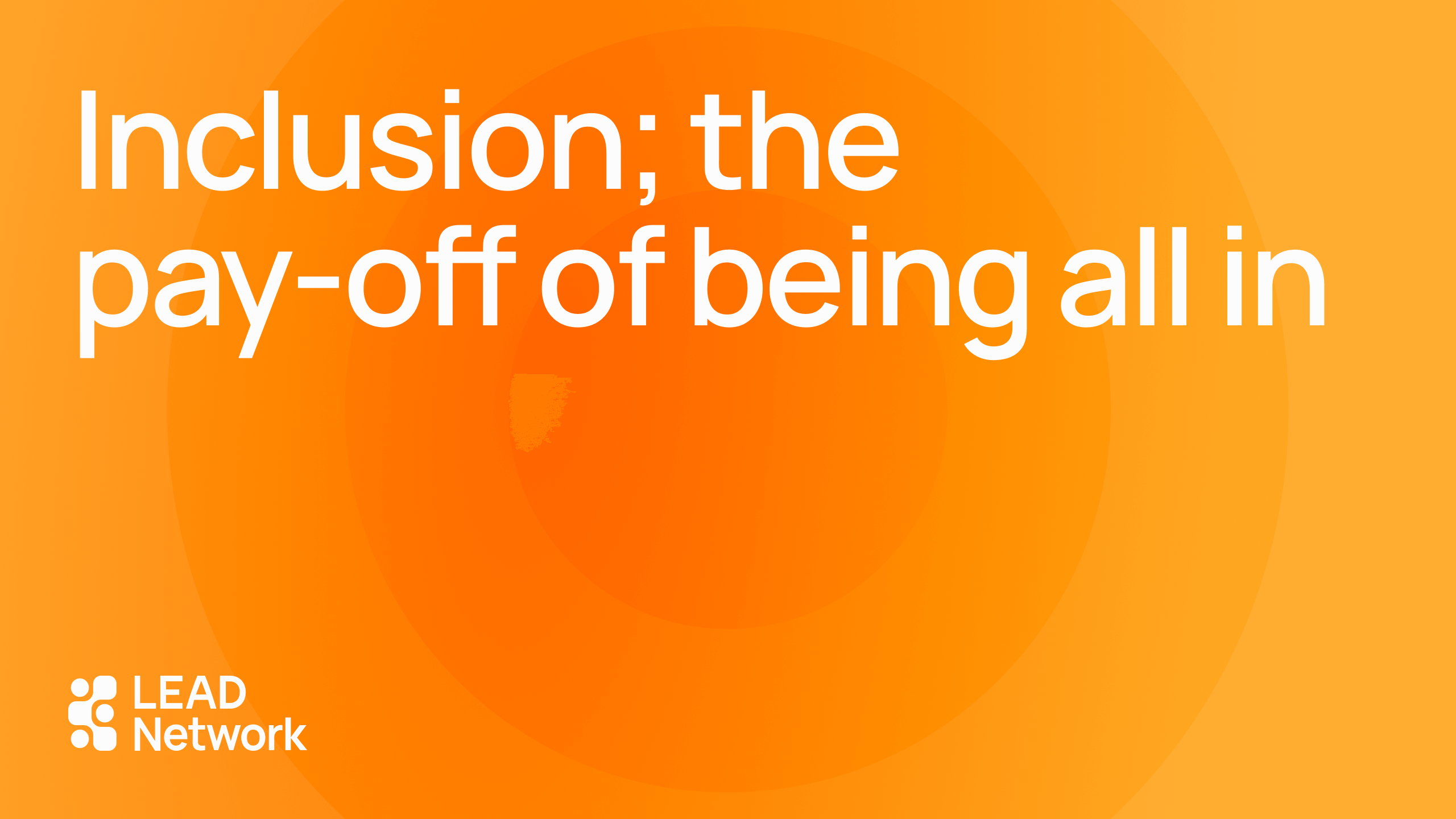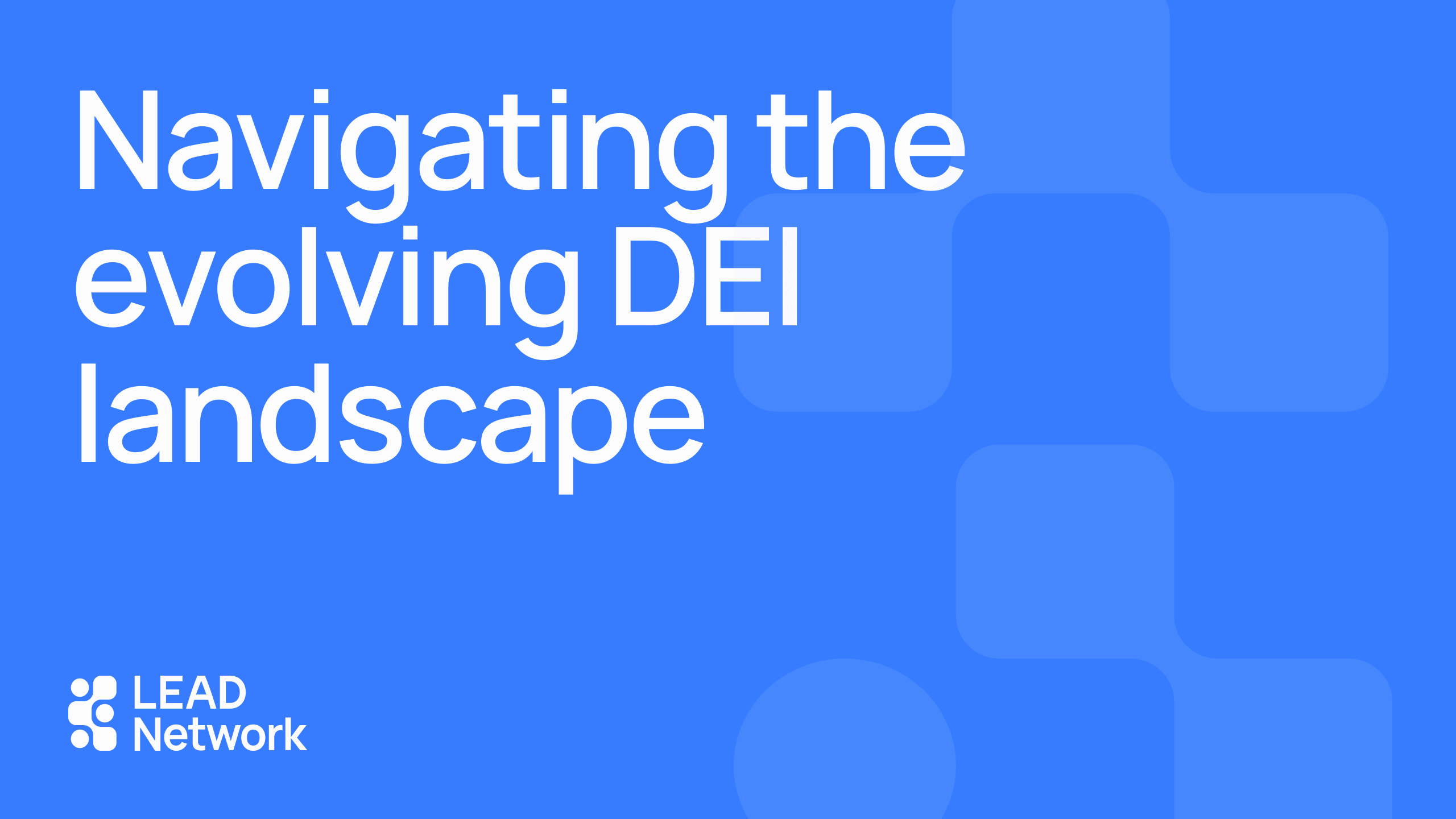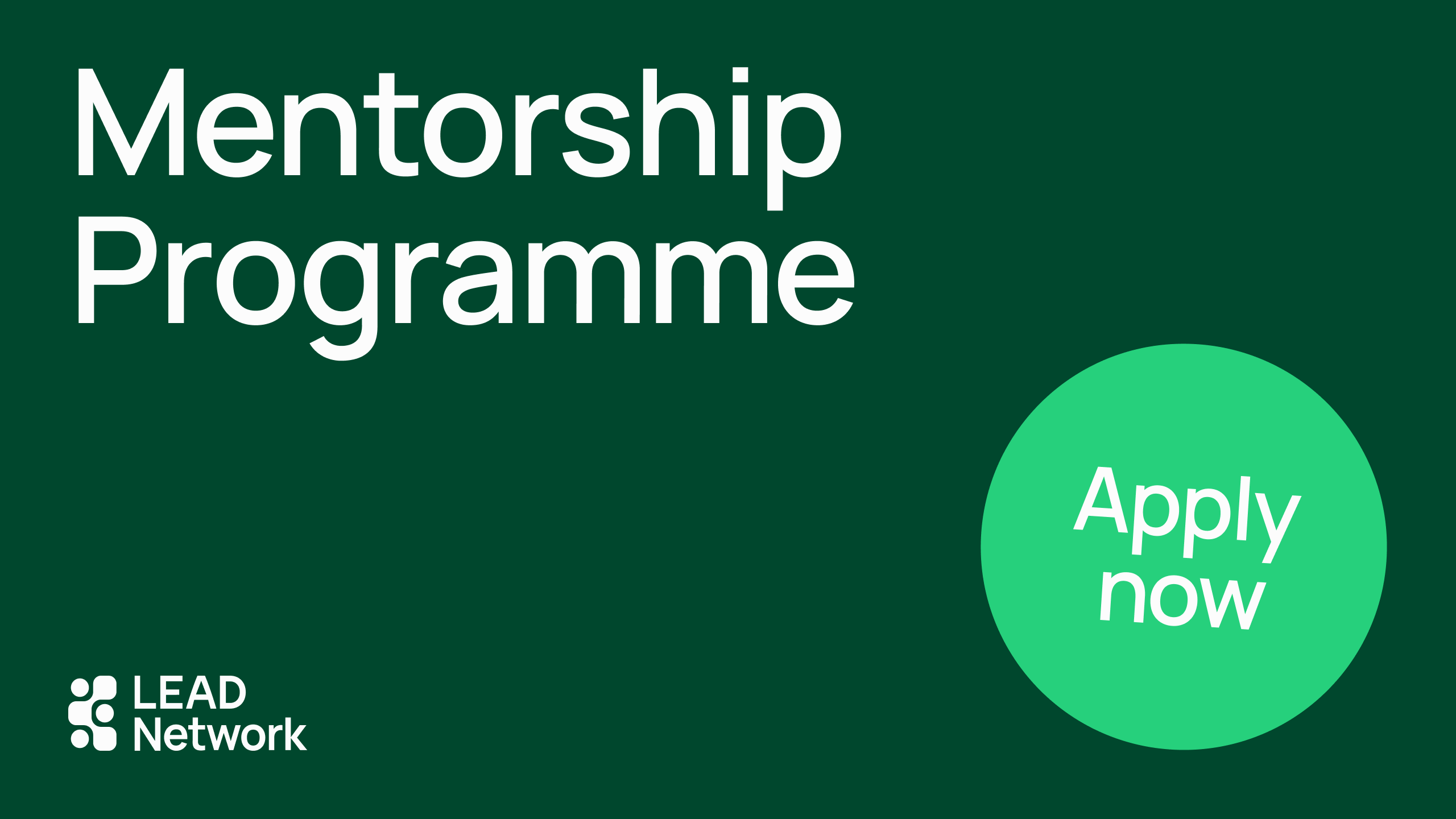Judith McKenna of Walmart: Small things matter
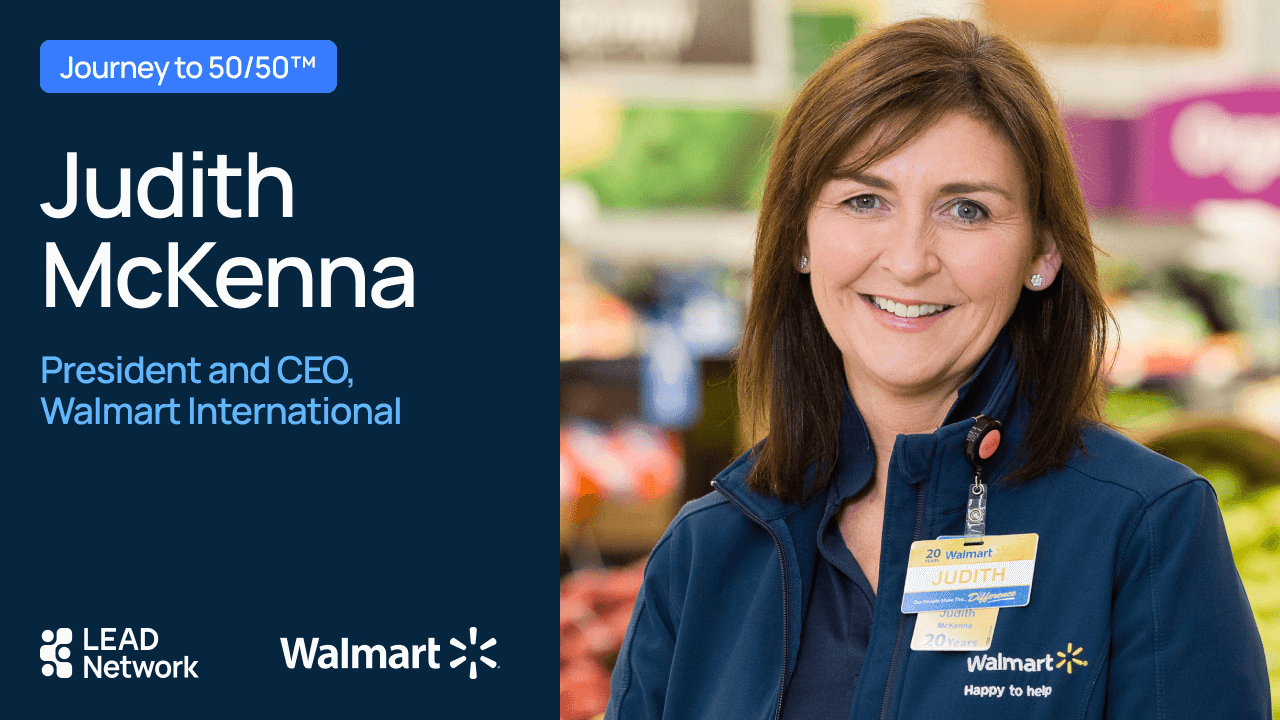
The Journey to 50/50 series is part of our commitment to sharing best practices among industry leaders. It aims to capture top-level insights for CEOs, by CEOs, to inspire those who are traveling a similar path.
Career snapshot
I was born and raised in Middlesbrough in the north of England. When I began my career in the late 1980s the world was very different and gender diversity wasn’t on most companies’ radar. My early roles were at KPMG and Allied Domecq, and then I joined Asda. As I built my own career, I started to see the opportunities that there were to create better gender parity at every stage of what we did. I have been President and CEO of Walmart International since 2018 and before that held various leadership roles within the US division. I never had a plan for my career – I’ve just followed what I enjoy, which is leading and developing people.
Walmart’s D&I journey
From the inception of the company, fairness and respect for individuals was in the DNA. We hear a lot about our founder, Sam Walton, but in fact his wife Helen was a driving force in the business, and this set us on a path where inclusion has been critically important. Now a broader concept of inclusion has started to take hold, because we need to think not just about gender equity but about intersectionality. Since last year we have been tracking not just the proportion of women, but the proportion of women of colour, which gives us a more nuanced picture. Our latest data, for the mid-point of the fiscal year 2022, shows that, globally, women in management accounted for 43.99% of the total, while the proportion of women at officer level (vice president and above) was 33.49%. In the US, women accounted for 45.64% of total management promotions, while women of colour made up 18.8%.
We publish a twice-yearly Culture, Diversity, Equity and Inclusion Report on our progress. This creates transparency and accountability for the company, but it also tells a story to the world that others can learn from. It was a lot of work getting the right data and validating it, but we wanted to shine a spotlight on areas where we have challenges and successes. There was a debate within the company about how to do it, but not about whether to do it. I am very proud; it’s a privilege to have a platform to talk about these issues and change things.
Walmart’s approach
We employ 2.3m people around the world, and we touch countless others – customers, consumers, shoppers – in 24 countries. We design our business to have a workplace culture where associates with unique identities, styles, experiences, abilities and perspectives are understood, supported and championed. That work depends upon the coordination and collaboration of teams from across the company to create a consistent and cohesive experience.
I’ll share a couple of examples. Our reach is pretty unique: we believe education is at the heart of opportunity. When we set out to build our first Walmart Academy, I was talking to a department manager and I said ‘When are you going to become an assistant store manager?’ and she said ‘Oh I can’t do that, I’ve got kids and it’s a six-week course which is too far away from where I live’. So we knew it was important to design our academies so that every one of our associates could get there with daily travel of no more than 90 minutes each way. I actually had one of my team with a map, measuring where those points were that everyone could easily get to. We now have a network of 200 Walmart Academies and are spreading the model to the rest of the world.
Supplier diversity is another important area for Walmart. We focus on women-, community- and minority-owned businesses, and how easy it is for them to enter our supply chain, providing them with training to be able to do things like e-commerce and export. We also ask our bigger suppliers to think about diversity on their teams. When we go to meetings, I will say things like, ‘I notice there are no women on your team, it would be good to see some more women next time’.
Learning 1 : Small things matter
CEO backing for big programmes is great, but you have to walk the talk. Small things matter and you need to pay attention to detail. For example, when you go to a meeting, do you think about the group you take with you and what message that sends out? Make meetings inclusive. Culture is created not by words but by people starting to believe in things when they see actions happening.
Learning 2 : Look in the mirror
Be transparent with your data. There is nothing like looking in the mirror to help underline where you are and what more you need to do. It is a catalyst and a galvaniser for the business overall.
Learning 3 : Create the right support
It’s one thing to recruit or promote women, but it’s another thing to retain them and ensure they succeed. You need to go far beyond simply having a diverse slate – you need to put in place systems and support. For example, we do a lot of listening and sponsorship with our Associate Resource Groups, and we created Shared Value Networks which draw on Walmart’s capabilities to contribute positive change in the criminal justice, education, financial and healthcare systems.

Next steps for Walmart
Across the business the more opportunities we give to our associates, the better we will be as a company. We are doing this around the world, so we can bring more people through, and we are starting the process earlier as well, by collaborating with schools and universities. I believe that if we never take our foot off the gas, we will reach the point of having a fully inclusive business at all levels.
Next steps for our industry
In retail it has been notoriously challenging to increase the number of senior women but this is now changing; there is definitely a will to change. We have to keep feeding the talent pipeline, and finding new ways to reach that balance. Digital communication means we don’t have to do it in the same old way – we can think differently. I believe fundamentally in hope. Optimism is telling people it’s going to be okay, but hope is giving them a path to get there and making them believe it can happen.
Share this article
More articles
February 17, 2025
November 3, 2024
October 17, 2024
